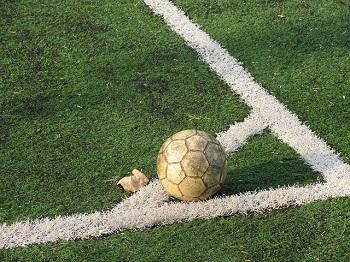
Published on: 17/01/19
The study is running throughout the 2018/19 football season collecting samples from injured and uninjured Premier League players.

Published on: 17/01/19
The research to review and potentially enhance concussion diagnosis in football is funded by The Drake Foundation and launched by The University of Birmingham and University Hospitals Birmingham NHS Foundation Trust.
Saliva and urine samples will be collected from injured Premier League players, as well as uninjured “control” players, by club doctors immediately post-match and at further time points over the course of a players’ recovery. The study is supported by the Premier League Doctors Group.
The samples will be tested using a new ground-breaking test, called the ‘Birmingham Concussion Test’, which has been developed following a decade of research led by academic neurosurgeon Professor Tony Belli.
The test looks for molecules in the blood, saliva or urine known as microRNAs, which can help indicate whether the brain has suffered injury.
This expands research also being carried out by the University of Birmingham and UHB, which began in 2017 and is currently ongoing, testing the urine and saliva of concussed Rugby Football Union players. It is part of the ongoing REpetitive COncussion in Sport (RECOS) study.
It’s hoped that in the future the Birmingham Concussion Test could be used pitch-side having the potential to help in return-to-play decisions or concussion diagnosis across sports, from grassroots to professional, in addition to military and other frontline settings.
Professor Tony Belli, Academic Neurosurgeon at the University of Birmingham and UHB and Director of NIHR SRMRC, said: “Early and accurate diagnosis of concussion is one of the biggest challenges we face clinically and is particularly a major concern in the sporting world.
“This exciting new study is an important addition to the breadth of research we are undertaking into concussion and player welfare in sport more broadly.”
James Drake, Founder of The Drake Foundation, a not-for-profit organisation committed to improving evidence-based measures for the management of concussion injuries in contact sport, said: “The conversation around concussion has come a long way in the last five years and scientific research such as this is essential in keeping our players safe.”